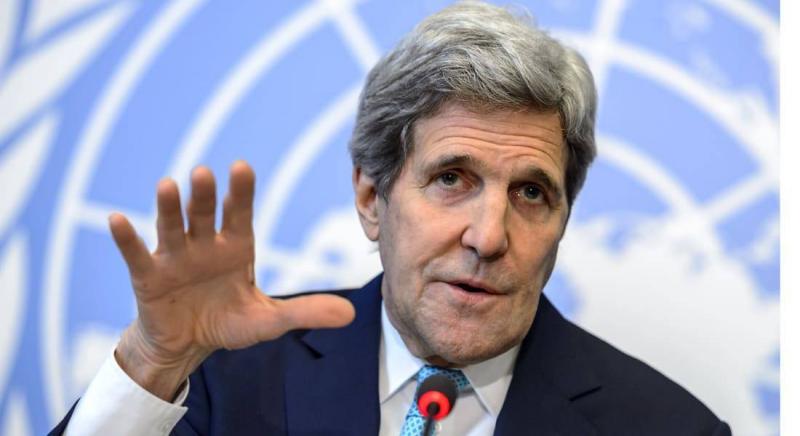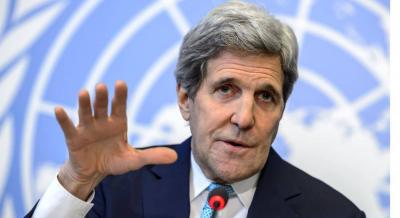U.S. climate envoy John Kerry warned on Thursday after talks with senior Chinese officials that Beijing's continued construction of coal-powered plants could "undermine" global efforts to achieve environmental goals. Tensions between Beijing and Washington have escalated in recent months, with reciprocal criticisms regarding China's human rights record and its handling of the coronavirus crisis. Addressing climate change is considered one of the few issues where both sides have found common ground. However, Beijing has recently emphasized that environmental cooperation could be harmed against the backdrop of deteriorating bilateral relations.
Kerry told reporters on Thursday evening that the United States has made it clear that "adding more coal plants poses a significant challenge to the world's efforts to deal with the climate crisis." He explained that China's plans for new coal plants could "undermine the world's ability to reach net-zero by 2050," adding that although the discussions were "extremely constructive," he was also "very candid" on this issue.
Despite commitments to peak coal consumption before 2030, China introduced 38.4 gigawatts of new coal power last year—more than three times what was added globally. Kerry urged the Chinese government not to let environmental cooperation be affected by tensions between the two largest polluting countries in the world, describing it as a "global challenge." He stated, "It is essential... regardless of the differences, to address the climate crisis."
Earlier during the visit, Chinese Foreign Minister Wang Yi told Kerry that cooperation on climate change cannot be separated from the broader diplomatic relations between the two countries. Wang accused the U.S., in a video call with the U.S. climate envoy, of making a "major strategic miscalculation toward China," according to a ministry statement. He said, "It is impossible for climate cooperation between China and the United States to rise above the overall environment of Sino-American relations." Wang added, "The ball is now in the United States' court, and the U.S. must stop viewing China as a threat and adversary."
Kerry visited Japan earlier this week before traveling to Tianjin in northeastern China, on a tour aimed at rallying support for a major global summit to address urgent climate issues. The 26th UN Climate Change Conference (COP26) in Glasgow in November is set to be the largest climate summit since the 2015 Paris negotiations. Kerry mentioned that he intends to meet with his Chinese counterparts again before the summit to press for stronger commitments to reduce emissions.
The U.S. envoy repeatedly urged China to intensify efforts to reduce carbon emissions, stating, "We have consistently told China and other countries... to do their utmost within their capacity." He added, "We believe that China can do more" in this regard. The Asian nation is the world's largest emitter of carbon dioxide, followed by the United States, which has historically emitted more than any other country. While Beijing has promised to peak carbon emissions by 2030 and become carbon-neutral by 2060, it still heavily relies on coal, which fuels nearly 60 percent of its energy consumption. Kerry remarked, "We have a chance to make a positive impact in Glasgow. It really depends on the choices China makes at this stage."




